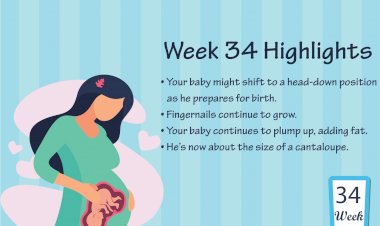Parents Sleep Deprivation After Baby : How To Deal
As a facing problem of new parents sleeps deprivation after infant, read on to learn how to survive those first sleep-deprived days.

According to a survey done by National Sleep Foundation, most of the new parents of infants—to be exact get 68 percent of less sleep than they required. Between feedings to changing cloths, and otherwise engaging with a newborn baby, having a toddler leaves new parents feeling like there’s little time to take care of their own requirements. Fortunately, finding time for sleep is not easy for the parent of a newborn baby. In the meantime, following these effective five strategies can surely help new parents figure out how to adjust to the situation and how to deal with it.
Step 1: Sleep When Baby Sleeps
As the newborn isn’t going to adjust his or her sleep schedule to accommodate others, so the best thing new parents can do is acclimatize to their baby’s routine, and grab a little snooze whenever baby does. In order to stay healthy and energized during your hectic schedule, your sleep health should be in your priority list. Every time, when a newborn goes down for a sleep, parents should follow that, even if it only amounts to 20 to 30 minutes of the nap, that time of rest will help your the body to recharge.
Step 2: Create good sleeping habits
Keep your baby active during daytime hours so that he or she sleeps better at night. Try to develop a bedtime routine and keep the room dark and quiet at night, so that the baby falls asleep easily. These routine assist your newborn to be aware of that nighttime is for sleeping. As they start sleeping better, so will you. Keep in mind that bedtime challenges will change as your baby ages, and the parents have to adjust according to that situation.
Make sure to avoid using screens before bedtime, don’t drink caffeine in the evening and create a peaceful sleep environment. This will help you fall asleep faster and sleep more soundly, even if you only get a few hours to sleep.
Step 3: Alternate Nights
Newborns require feed at regular interval of time, which means sleep disruptions during the night for at least the first several months. Lessen the load a little by preparing bottles in advance, and trading off nights with your partner.
Step 4: Accept Help
If possible, ask for help from your friends, family, and partner to share the responsibility of baby care and other household chores. During these first weeks of parenthood, it’s entirely fine to duck into the bedroom for a snooze while relatives meet the newborn for the first time. Another idea: Give each visiting guest a task to run, whether that’s picking up a few groceries or taking your dog for a walk, freeing up a few precious minutes for new parents to relax and perhaps a nap.
Step 5: Talk with a Doctor
If the level of new-parent fatigue feels unmanageable, it’s time to ask for medical help. A physician may be able to identify ways to adjust a feeding schedule of other daily activities to allow for more rest time. The medical experts may also assist you in identifying and to handle the underlying conditions, such as postpartum depression in a better way that makes it difficult to get the necessary sleep.

 Dr. Preeti Mittal
Dr. Preeti Mittal 

































Comments (0)